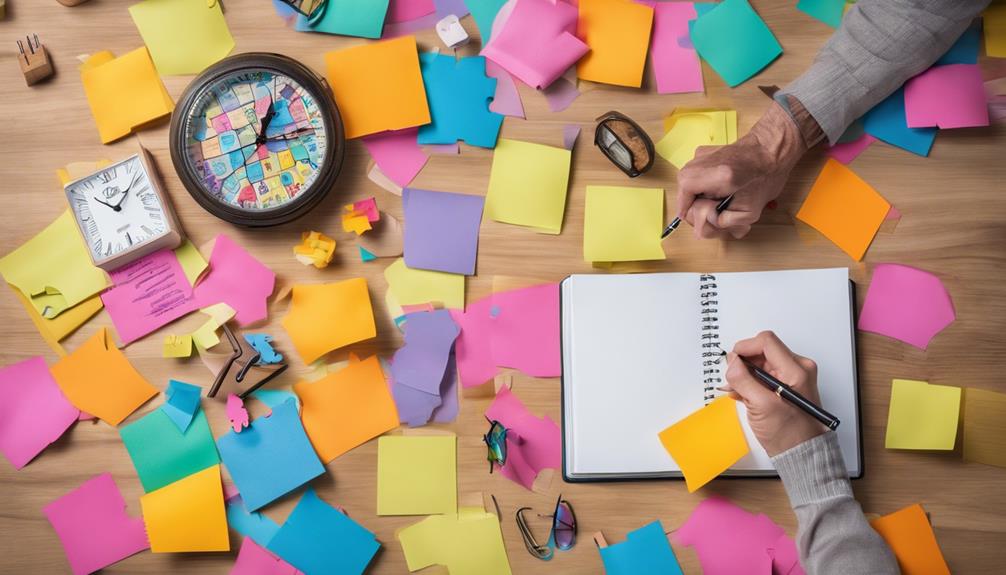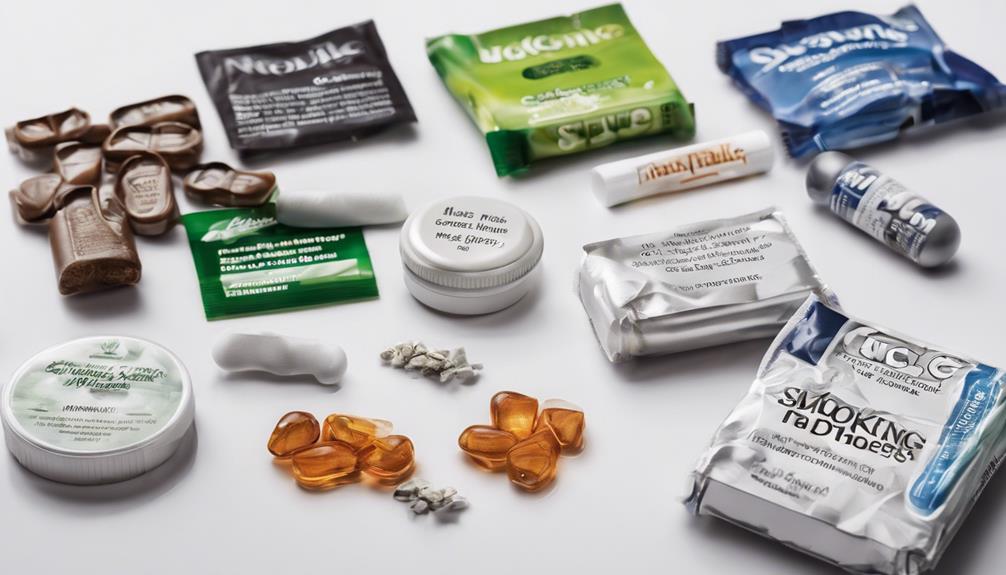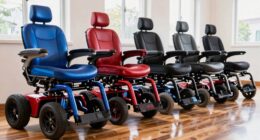To improve memory, participate in activities that strengthen memory. Consider lifelong learning as a way to enhance memory retention and cognitive function. Stimulate your senses by engaging in activities that involve touch, taste, and smell to boost memory recall. Having positive beliefs about memory preservation can improve your memory skills. Organizing and decluttering can help save brain power and assist with memory recall. Utilize mnemonic devices such as acronyms to connect information with easily memorable cues. These techniques are effective in combating memory loss and protecting cognitive function. Additional helpful tips are available to further enhance your memory skills.
Key Takeaways
- Engage in lifelong learning to enhance memory retention and cognitive function.
- Challenge senses with multisensory activities for improved memory.
- Foster self-belief for better memory capabilities and retention.
- Economize brain use with tools and strategies for optimal memory function.
- Use mnemonic devices like acronyms and visualization for memory aid.
Lifelong Learning and Memory Retention
Engaging in lifelong learning enhances memory retention and cognitive function in old age. Learning new things like reading, playing chess, or taking classes can act as a shield against cognitive decline. These activities are like a gym for our brains, keeping them fit and active. We can think of memory as a muscle that needs regular exercise; the more we use it, the stronger it becomes. For healthy adults, engaging in mental exercises can help keep memory sharp and prevent forgetfulness.
Everyday Memory is like a learning tool that we can use to keep our minds agile. Just like how we exercise to keep our bodies healthy, activities like reading and playing chess stimulate our brains. By challenging ourselves with new information and tasks, we can strengthen our memory and cognitive abilities. Lifelong learning is a powerful strategy to guard against memory loss, especially as we grow older. It's a key defense against neurological disorders that can affect memory function.
Challenging Senses for Memory Improvement
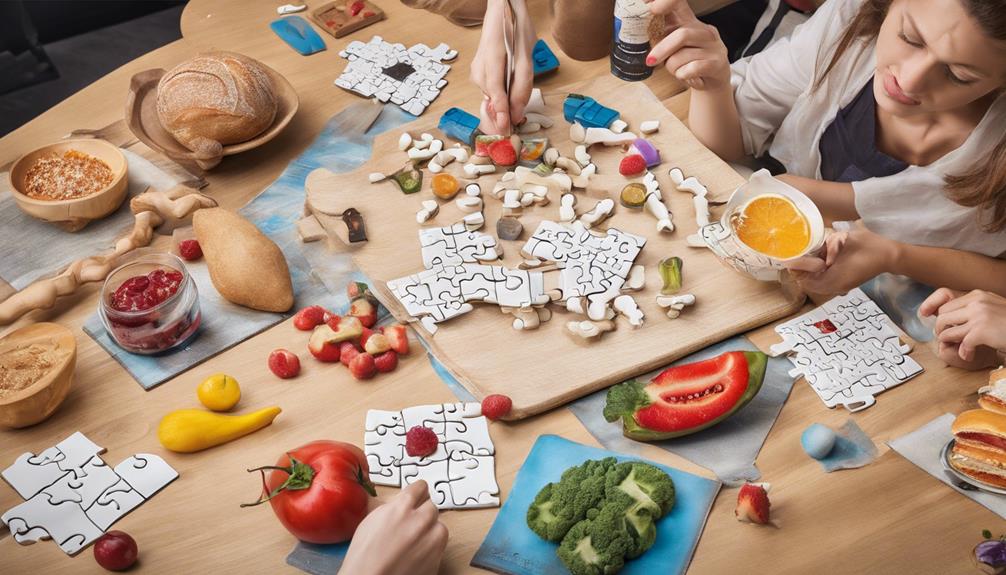
To further enhance memory retention and cognitive function, exploring activities that challenge multiple senses can be a valuable strategy. Engaging our senses like touch, taste, and smell while learning not only boosts brain activity but also improves memory recall.
Activities such as sculpting, cooking, or gardening can stimulate different senses, supporting memory enhancement in unique ways. By creatively incorporating all our senses into learning experiences, we can greatly improve memory performance and enhance cognitive flexibility.
Research indicates that multisensory engagement plays an important role in creating stronger memory connections and promoting overall brain health. Hence, for those seeking memory improvement and cognitive function enhancement, actively involving multiple senses in various activities can be a practical and effective approach to combat memory loss.
Fostering Self-Belief for Memory Enhancement
How can fostering self-belief contribute to enhancing memory capabilities?
Positive beliefs about memory preservation play an important role in improving memory tasks and retention. When we've confidence in our memory abilities, it leads to better memory skills and performance. Cultivating self-belief through positive reinforcement can enhance memory capabilities greatly. Self-belief in memory maintenance translates into improved memory function, helping us remember important information more effectively.
Additionally, maintaining positive attitudes about aging can help keep our minds sharp and focused. By fostering self-belief, we can tackle memory tasks with greater ease and efficiency. It's essential to believe in our memory enhancement abilities to maximize our potential in retaining information. Encouraging self-belief not only boosts our memory function but also empowers us to approach memory-related challenges with a positive mindset. Let's continue to nurture our self-belief for better memory enhancement and overall cognitive well-being.
Economizing Brain Use for Better Memory
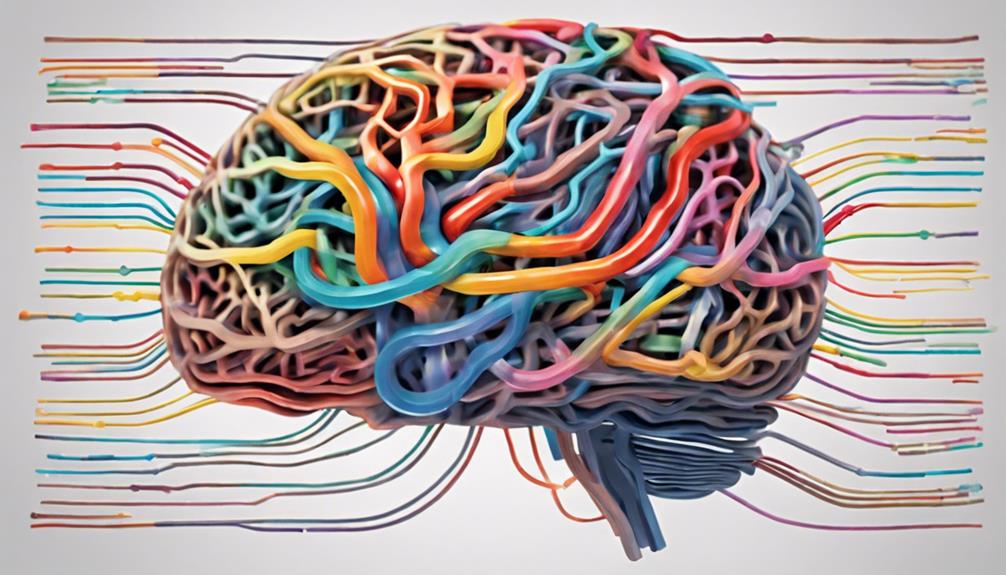
By optimizing our use of tools and strategies, we can enhance memory function and retention. When facing memory problems, it's essential to employ various strategies to help economize brain use for better memory.
One effective approach is to organize frequently used items in a way that makes it easier to remember their locations. This can reduce cognitive load and free up mental energy for improved memory recall. Additionally, utilizing tools like calendars, planners, shopping lists, and address books can optimize brain use for memory tasks.
By designating specific places for commonly used items, we streamline cognitive processes and aid in memory preservation. For individuals with brain injuries or those caring for a family member with memory issues, minimizing distractions through decluttering spaces can enhance focus and memory retention.
Utilizing Mnemonic Devices for Memory Aid
When enhancing memory retention, incorporating mnemonic devices proves to be a valuable strategy due to their effectiveness in aiding memory recall. Mnemonic devices are memory aids that help individuals remember information by associating it with easy-to-recall cues or patterns. Common mnemonic techniques include acronyms, acrostics, visualization, and chunking, which can greatly enhance memory retention. These strategies are particularly helpful for remembering lists, sequences, names, numbers, and other challenging information. By engaging different parts of the brain, mnemonic devices make it easier to encode and retrieve memories, leading to improved memory recall.
| Mnemonic Techniques | Benefits |
|---|---|
| Acronyms | Easy recall of lists |
| Acrostics | Remembering sequences |
| Visualization | Enhanced memory retention |
| Chunking | Simplifying complex information |
| Association | Connecting new information with known concepts |
Incorporating mnemonic strategies into learning can be a powerful memory aid, helping individuals retain and recall information more effectively.
Frequently Asked Questions
How Do You Help Someone Get Their Memory Back?
We support memory recall by emphasizing physical activity for improved blood flow, engaging in stimulating activities, nurturing social connections, implementing organization strategies, and promoting healthy habits like sleep, nutrition, and hydration. Together, we can help enhance memory function.
How Can I Overcome My Forgetfulness?
Forgetfulness can be overcome through active lifestyle choices, stimulating mental exercises, social interactions, organizational habits, and healthy living. Prioritizing these strategies fosters better memory function and overall well-being. Let's embrace these practices for memory improvement.
How Do You Help Someone Who Keeps Forgetting Things?
We assist those who frequently forget by encouraging organization, setting routines, and creating designated places for important items. We also offer emotional support and suggest memory aids like calendars or mnemonic devices for improved memory retention.
How Do You Cope With Memory Impairment?
We face memory impairment by embracing familiar activities and relying on existing skills. Seeking support from loved ones and experts is essential. Sharing daily routines and planning ahead help us manage memory challenges effectively, ensuring a fulfilling life. Additionally, staying organized with the use of tools like calendars and reminders can greatly enhance our ability to cope with cognitive changes. Managing memory loss after seizures often requires a combination of medical guidance, lifestyle adjustments, and consistent routines to maintain clarity and independence. By remaining proactive and open to adapting strategies, individuals can continue to lead fulfilling lives despite the challenges they may face.
Conclusion
To sum up, memory loss can be challenging, but there are effective strategies to help improve memory retention. By engaging in lifelong learning, challenging our senses, fostering self-belief, economizing brain use, and utilizing mnemonic devices, we can enhance our memory skills.
Remember, with dedication and practice, anyone can work towards a sharper memory. So, let's take small steps each day to keep our minds sharp and our memories strong.
